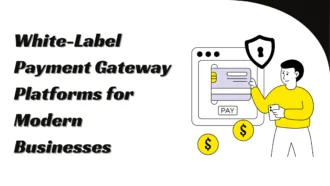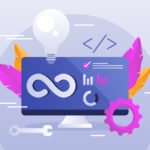How Technology is Transforming Academic Support Today
In the rapidly evolving world of education, technology has emerged as a powerful force driving significant changes in how students receive academic support. Gone are the days when students had to rely solely on traditional methods like textbooks and in-person tutoring sessions. Today, technology has opened up a world of possibilities, making academic support more accessible, efficient, and personalized than ever before. This blog will explore how technology transforms academic support, focusing on dissertation and assignment helpers.
The Evolution of Academic Support
Academic support has always been a crucial element of the educational journey. From peer study groups to one-on-one tutoring, students have historically sought assistance to help them navigate the complexities of their coursework. However, technology has revolutionized this support system, making it more comprehensive and tailored to individual needs.
With the proliferation of digital platforms, students now have access to many resources at their fingertips. Online libraries, academic databases, and e-learning platforms provide students with instant access to information, allowing them to conduct research, find relevant study materials, and deepen their understanding of complex topics.
Moreover, the rise of online tutoring and academic support services has bridged the gap between students and experts worldwide. Whether a student is struggling with a difficult assignment or needs guidance on their dissertation, they can now connect with qualified professionals who can provide personalized assistance, regardless of geographical constraints.
The Rising Need for Dissertation Support
Writing a dissertation is one of students’ most challenging tasks during their academic careers. It requires extensive research, critical thinking, and the ability to articulate complex ideas clearly and coherently. For many PhD candidates, the process can be overwhelming, leading to stress and anxiety.
This is where dissertation helpers come into play. Technology has made it easier than ever for students to seek help with their dissertations. Online platforms offer access to experienced dissertation advisors who can guide everything from choosing a research topic to structuring the dissertation and editing the final draft.
One of the most significant advantages of a dissertation helper is receiving tailored support that meets the student’s specific needs. Unlike traditional methods of seeking help, which may be limited by time or availability, online dissertation helpers can offer flexible support that fits into the student’s schedule. Whether through email, video calls, or online chat, students can receive the assistance they need when they need it most.
The Role of Assignment Helpers in Academic Success
In addition to dissertation support, assignment helpers have become an invaluable resource for students at all levels of education. The pressure to excel academically and the demands of multiple assignments can be daunting for students. This applies to those juggling coursework with part-time jobs, internships, or extracurricular activities.
Assignment helpers, accessible through various online platforms, provide students with the support they need to manage their workloads effectively. These professionals assist with multiple assignments, from essays and research papers to case studies and presentations. By leveraging their expertise, students can ensure that their tasks are completed to a high standard, even when time is limited.
Furthermore, assignment helpers offer more than just writing assistance. They can provide valuable insights into the subject matter, helping students to understand the concepts they are working on. This deeper understanding not only improves the quality of the assignment but also enhances the student’s overall learning experience.
The convenience of online assignment helpers cannot be overstated. Students no longer have to wait for office hours or make appointments to get help. Instead, they can access support whenever it suits them, making it easier to balance their academic responsibilities with other commitments.
Technology-Driven Solutions for Better Academic Outcomes
Integrating technology into academic support has led to a more personalized and efficient approach to learning. Tools such as AI-powered writing assistants, plagiarism checkers, and citation generators have streamlined the research and writing process, allowing students to focus on developing their ideas rather than getting bogged down by technical details.
For example, AI-driven writing tools can help students refine their work by suggesting grammar, style, and structure improvements. Plagiarism checkers ensure students maintain academic integrity by identifying unintentional similarities with existing works. Citation generators simplify the often tedious process of creating bibliographies, saving students valuable time and effort.
These technology-driven solutions are particularly beneficial for students working on complex projects such as dissertations. By automating routine tasks, these tools allow students to concentrate on the more critical aspects of their work, such as conducting original research and developing their arguments.
Balancing Technology and Human Interaction
While technology has undoubtedly transformed academic support, balancing digital solutions and human interaction is essential. Personalized guidance from experienced professionals remains a cornerstone of adequate academic support. Dissertation and assignment helpers, with their expertise and understanding of educational requirements, provide a level of insight and mentorship that technology alone cannot replicate.
The ideal approach to academic support combines the best of both worlds. Students can use technology to enhance their learning experience while also seeking guidance from qualified professionals who can offer personalized advice and feedback. This hybrid model ensures that students receive comprehensive support that addresses their education’s technical and intellectual aspects.
Conclusion
Technology has fundamentally changed the landscape of academic support, making it more accessible, efficient, and personalized. From dissertation helpers to all other assignment helpers, students now have a wealth of resources to help them succeed in their academic endeavors. By leveraging these tools and services, students can navigate the challenges of their coursework more effectively, leading to better academic outcomes and a more fulfilling educational experience.
As technology continues to evolve, the possibilities for academic support will only expand, offering students even more opportunities to achieve their educational goals. Whether through a dissertation helper or an assignment helper, the future of academic support is bright, promising a more inclusive and supportive learning environment for all.

















